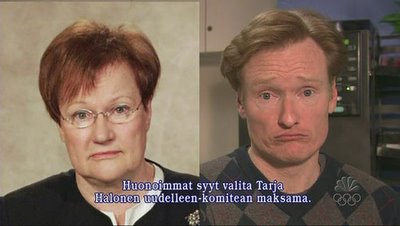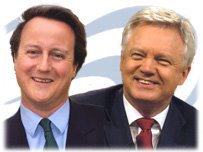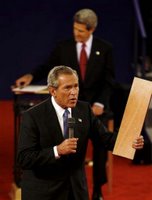Talking football and music with Nick
 Last night I listened – and briefly talked to – one of the artists I have followed and admired since the mid-1990s. I know this might sound somewhat ridiculous, but Nick Hornby has played a reasonably important role in my life, in the same way as Bruce Springsteen, Bob Dylan, Emmylou Harris, and quite a few other artists have: they have all been a familiar voice, saying wise things, in times when I have been very sad, glad and/or confused.
Last night I listened – and briefly talked to – one of the artists I have followed and admired since the mid-1990s. I know this might sound somewhat ridiculous, but Nick Hornby has played a reasonably important role in my life, in the same way as Bruce Springsteen, Bob Dylan, Emmylou Harris, and quite a few other artists have: they have all been a familiar voice, saying wise things, in times when I have been very sad, glad and/or confused.Nick Hornby’s Fever Pitch and High Fidelity rocked my world in a way, and after reading those books I learnt three things:
1. It is ok to be totally obsessed by football, and feel physically ill when your team is about to be relegated - or win the championship. A lot of people behave that way, and that obsession can also be used to sort out relations with friends or family members who also cannot help hugging total strangers in a stadium or in a bar when your team scores.
2. It is ok to be totally obsessed by rock’n’roll, and to regard the compilation of a mixed tape the highest proof of affection to a human being. This can complicate your relation to the other sex, but as you grow older, you learn that all relations cannot be as uncomplicated and easy-going as a three-minute pop-song with The Beatles. And that other signs of affection should be brought into the relationship as well.
3. Boys do cry, relationships are difficult, you often feel sad, lonely and useless but it is stupid to only drink pints with your mates and never talk about it. The relation between boyfriend-girlfriend in High Fidelity, or father-son in Fever Pitch, gives you some basic, important clues.
Thanks to my wonderful friend Henrik, I ended up going to a theater in Stockholm last night (Södra Teatern), where Nick Hornby read music-related essays. One of Hornby’s favorite bands, Marah, played some of the tunes mentioned in Hornby’s essays, and later they played a short but fantastic gig. (Their version of The Clash’s “Lost in the supermarket” was awesome).
The essays where all very thoughtful and funny, and it was nice to hear Nick Hornby read them in his very English accent. Personally, I laughed a lot when he spoke about how you remember many concerts mostly because you really had to pee but couldn’t (U2 in June 1992 came to mind). Or how you spent other concerts only thinking about the relation you had (or wanted to have) with the person you went to the concert with (a concert in December 1993 came to mind here).
After the concert, it happened that Henrik and I could have a brief and enjoyable discussion with Nick Hornby. I had to ask him if he had a solution to how both Gerrard and Lampard can play midfield for England in the World Cup this summer, and we also exchanged some concert stories and views of the band Marah. I regard that little chat as private, but since my old copy of Fever Pitch now has a written dedication, I will share that quote. The quote comes from one of the essays Hornby read, and I asked him to write it down since I think it represents my view/ a “Fred Perry-progressive view” of music, but also politics and football; know and respect the past, but live in the present, and don’t ever stop thinking about tomorrow:
“Do I think the music of the past is better? On the whole, yes I do. But it’s not a fair fight. There’s more past than present”. Nick Hornby









